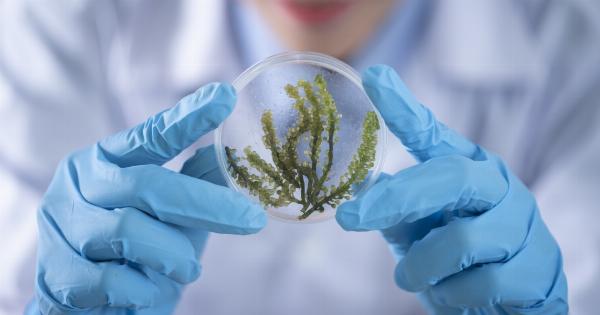Menopause is a normal biological process that every woman goes through as she ages. It marks the end of her reproductive years and signifies a change in her hormonal levels.
This phase of a woman’s life can bring many challenges and changes, one of which is a significant decrease in libido and sexual desire. Changes in hormone levels, mood swings, hot flashes, and vaginal dryness can all contribute to this decrease in sexual interest.
What is menopause?
Menopause marks the end of a woman’s reproductive years, and it happens when a woman stops having periods for 12 consecutives months. Menopause usually occurs between 45 and 55 years of age, but it can happen earlier or later as well.
The transition leading up to menopause is called perimenopause, which begins several years before a woman’s final menstrual period and can last for up to a decade.
What causes menopause?
Menopause occurs naturally as a woman’s ovaries gradually produce less estrogen and progesterone, the hormones that regulate menstruation and fertility.
However, menopause can also occur due to other factors such as surgical removal of both ovaries, chemotherapy, radiation therapy, or certain medical conditions such as premature ovarian failure.
How does menopause affect sexual health?
Menopause can have a significant impact on women’s sexual health, leading to reduced libido and sexual function.
The decrease in hormone levels, particularly estrogen, can cause vaginal dryness, thinning of the vaginal walls, and decreased blood flow to the genital area. These changes can make intercourse painful and uncomfortable, which can result in reduced desire for sex. Additionally, mood swings, hot flashes, and night sweats can all contribute to a decreased interest in sexual activity.
What can women do to improve their sexual health during menopause?
While menopause brings many challenges, there are things women can do to improve their sexual health and maintain a satisfying sex life. Here are some tips:.
1. Seek medical advice
If you’re experiencing symptoms of menopause, such as vaginal dryness or pain during sex, talk to your doctor. They may be able to recommend treatments or medications that can alleviate these issues.
Hormone replacement therapy (HRT) is one such option, which replaces the hormones that your body no longer produces, thereby reducing many of the physical symptoms of menopause.
2. Use lubrication
Vaginal dryness can make intercourse painful, but using a water-based lubricant can make it more comfortable. Lubricants can also enhance sexual pleasure for both partners.
Be sure to choose a lubricant that is pH-balanced and doesn’t contain fragrances or other irritants that could cause inflammation.
3. Practice good self-care
Maintaining a healthy lifestyle can improve your overall well-being and drive your sexual interest.
Eating a healthy diet, getting enough sleep, and engaging in regular exercise can inspire feelings of vitality and wellness, which can translate to a healthier sex life. Additionally, reducing stress through relaxation techniques such as yoga and meditation can help manage the mood swings and hot flushes that can contribute to a decreased desire for sexual activity.
4. Explore different sexual activities
Menopause can be a time to explore new sexual experiences and activities. Engaging in different forms of physical intimacy, such as sensual massage, can increase intimacy and improve communication with your partner.
Experimenting with different positions and finding new ways to experience pleasure can also improve sexual satisfaction.
5. Communicate with your partner
Effective communication with your partner can help maintain a satisfying sex life during menopause. Talk openly and honestly about any changes or difficulties you’re experiencing and explore new boundaries together.
Discussing your sexual preferences and desires can help you stay connected and enjoy a fulfilling sex life together.
The bottom line
Menopause can be a challenging time for women, but there are many things they can do to maintain a satisfying sex life.
By seeking medical advice, using lubrication, practicing self-care, exploring different sexual activities, and communicating with their partner, women can navigate the challenges of menopause and enjoy a fulfilling sex life.






























